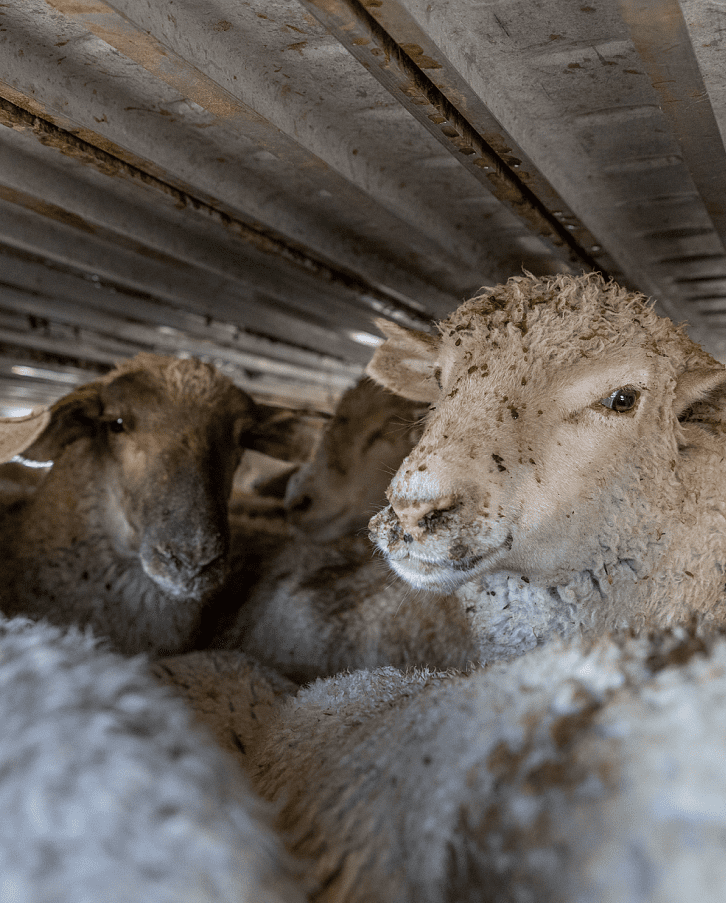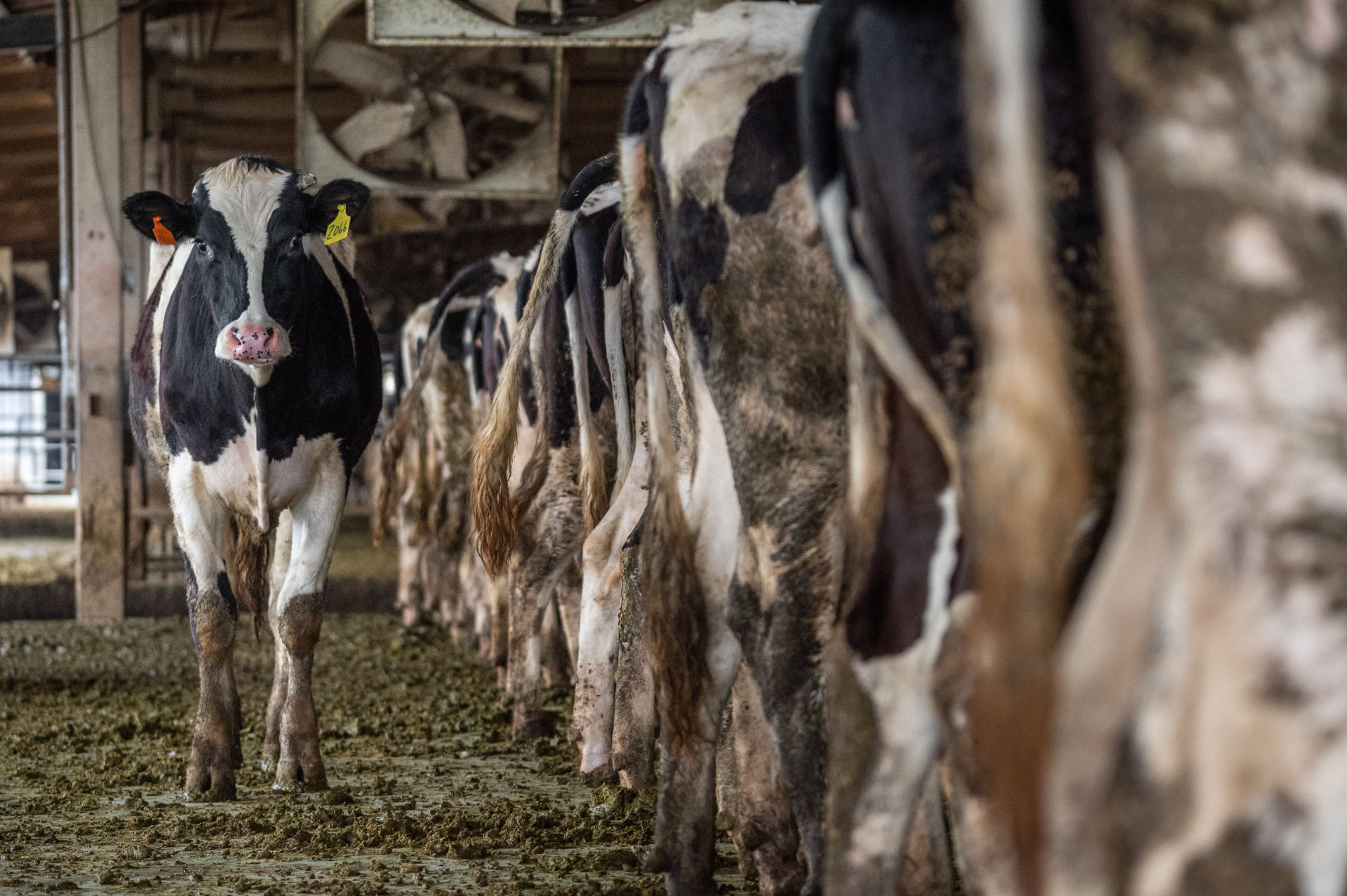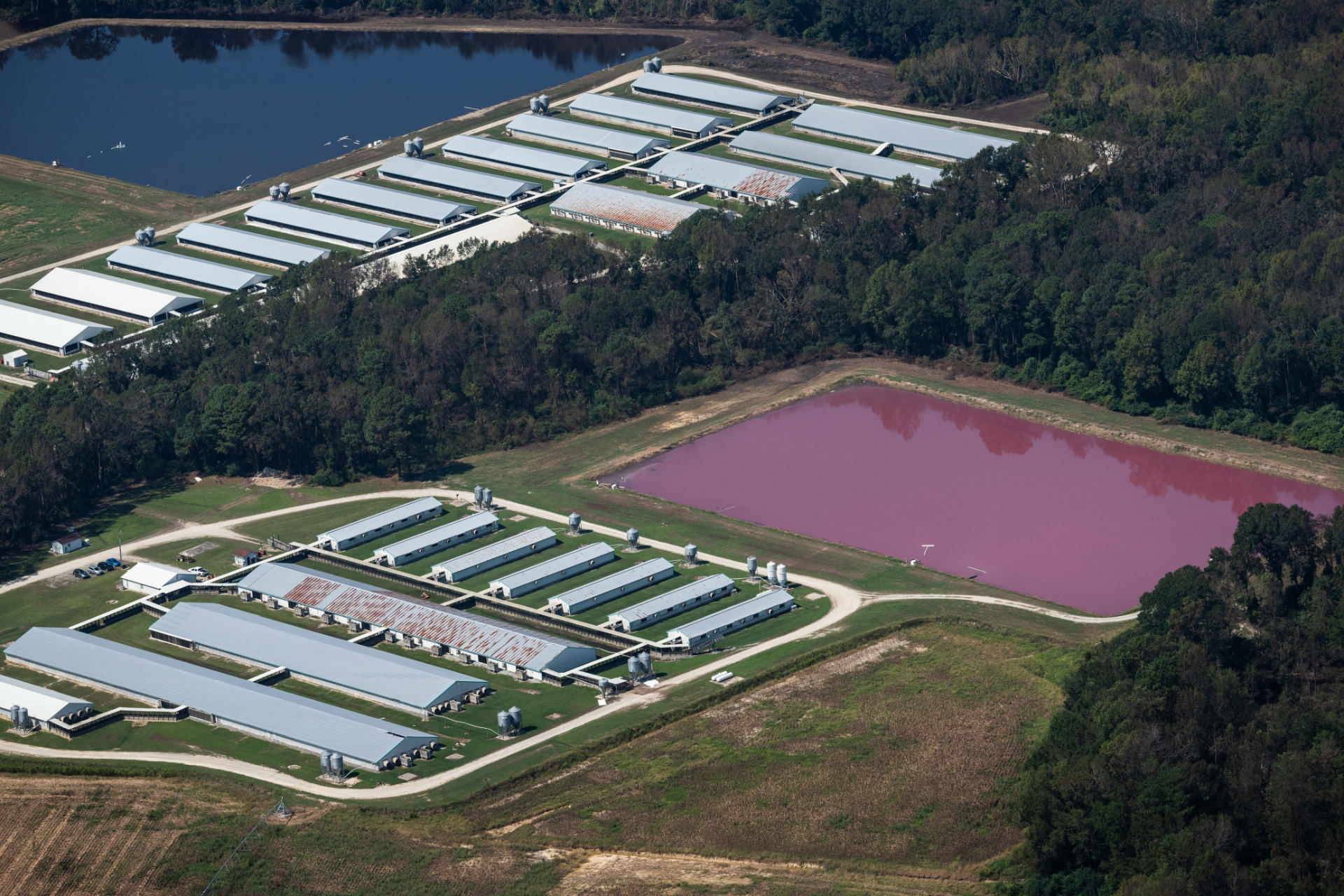Learn and Make an Impact
Each day at Rosie’s Farm Sanctuary, we educate the public about the suffering of billions of individuals abused by animal agriculture — and inspire others to help us bring about an end to that suffering. You can make a difference, too!
Browse this page for resources to help you learn more and inspire others to join you in standing up for animals. Plus, consider visiting, volunteering, and donating today to make your impact go even further.
Articles written by Jennifer Mishler


Each year, more than 70 billion land animals are raised and slaughtered for human consumption.
This staggering figure does not even count the fish and other marine animals that are farmed or captured for food — nearly 3 trillion annually, by some estimates.
The vast majority of farmed animals on land now spend the entirety of their shortened lives confined in crowded industrial farms, enduring unimaginable cruelty and careless neglect. Nearly all U.S. farmed animals — 99% — live inside crowded factory farms.
However, on smaller farms, rapidly vanishing due to the industrialization of our food system built to produce a massive amount of food at a low cost, animals suffer and die for food, too.
Like us, animals want to live, and that makes the needless act of killing them for food, clothing, and experiments inherently cruel. Furthermore, animal agriculture not only causes immense suffering for animals but exploits workers, harms our communities, jeopardizes public health, and pollutes our environment.
Yet, speciesism, the belief that humans are superior to all other life, allows this cycle of violence to continue. But you can help break the cycle.
Learn about the ways in which animal agriculture harms animals, our planet, public health, and marginalized individuals and communities.

Animal Agriculture
Animals raised for food, clothing, and experiments are subjected to horrific abuse. Countless undercover investigations have revealed heartbreaking brutality towards animals on farms, but the many acts of violence uncovered by investigators are not isolated incidents; they are part of an industry built on systemic exploitation and cruelty. Farmed animals also experience painful practices that, although they may not be widely known by consumers, are standard in the meat, egg, and dairy industries.
Environment
We are facing a climate crisis — that the degradation of our environment is now happening so quickly that we must act immediately to address it, including by slashing food sector emissions. Animal agriculture is widely known to be a leading cause of climate change, as it drives deforestation, pollutes our water and air, and contributes massive amounts of harmful greenhouse gases, including methane


Health
A growing body of research ties meat to an increased risk of heart disease and certain types of cancer, but animal agriculture’s impact on our health does not stop there. We are suffering from the effects of the industry’s pollution, and as experts warn, potentially at risk from zoonotic illnesses that spread rapidly on crowded farms. And with over 1 million people already dying of treatment-resistant infections annually, the industry’s rampant use of life-saving antibiotics is of increasing concern.
The good news is you can oppose the harms of animal agriculture.
By taking the opportunity to learn more today, and to share your knowledge with others, you are helping to create a kinder world — one in which all animals and humans alike are treated with respect and care. By considering your own diet, you can be part of the solution and also set an example for others.
Join Rosie’s Farm Sanctuary today as we rescue, educate, and advocate. Please plan a visit or consider volunteering to find out more ways to help. Plus, donate to support our life-saving work.

Social Justice
Animal agriculture facilities, which create mass amounts of waste, noise, odor, and pollution, can be hazardous and present a daily nuisance for the people living around them. Most often, these operations are located in low-income neighborhoods and disproportionately impact people of color. And within the farms themselves, humans are exploited, working long hours and facing a high risk of serious injury in one of the nation’s most dangerous industries.